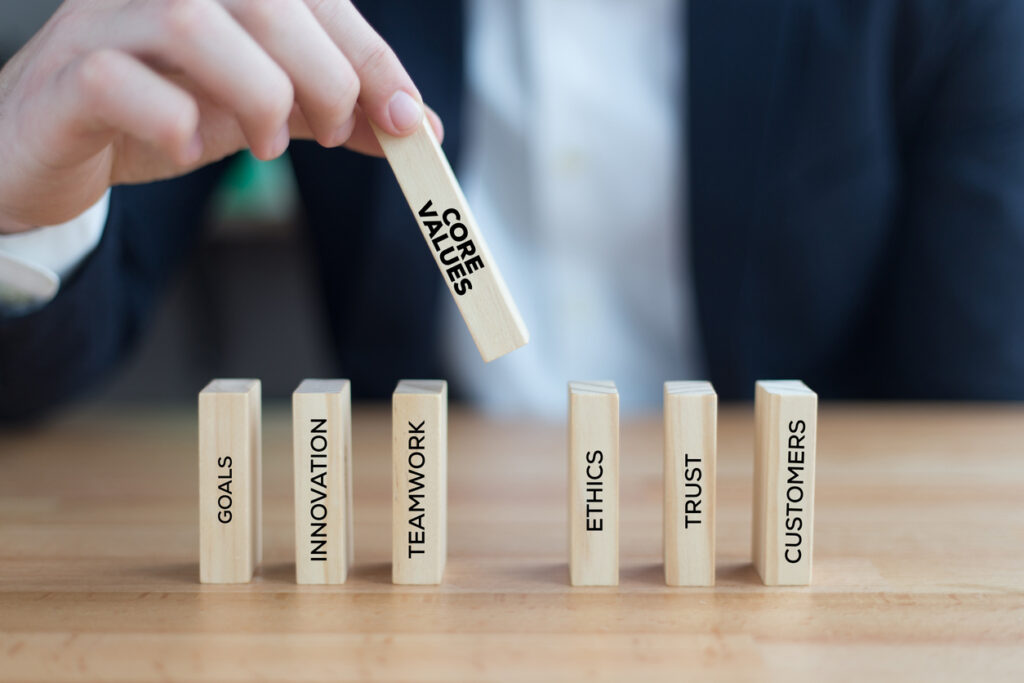A crisis seems to bring out the best in people. We’ve seen this after events such as Hurricane Katrina and 9/11, where there were great acts of heroism, as well as small acts of kindness that made a big difference to people’s lives. A crisis can break down barriers, remove unnecessary process, mandate more delegation and drive self-management.
While there have been many challenges to overcome in recent months, this is also a real opportunity for organisations to hold a mirror up to themselves and to learn from the many positive elements that have surfaced during this crisis.
We’ve surveyed over 200 people and spoken to around 30 MDs/CEOs to understand how they have responded to the recent pandemic and what they are thinking about next. The Covid-19 crisis seems to have created a single purpose and a spirit of ‘can-do’ in many organisations, the feeling of being in it together. In some organisations it has created an almost cause-related response that has driven both engagement and pride. The ‘why’ became very clear: to keep people safe and to stay in business.
Communications and engagement
Leaders have found that the crisis has pushed their organisation’s communications and engagement approach to the next level. In every interview people said there was more face-to-face (albeit virtual) contact, more frequent communications and more honesty and transparency than there had been pre-Covid-19. The results of this have been showing up in employee pulse surveys and conversations, with engagement and pride being much higher than before the pandemic.
An insurance company we spoke to has seen a 7% rise in its employee satisfaction score. Another company reported its highest ever engagement score at 89%. Organisations have rallied around, with people pulling together to be flexible and tolerant of one another. People feel like they know their immediate team and leaders a lot better, and know more about their homes, children and personal situations – in this sense, remote working has been a great leveler.
With little distinction between work and home life, however, many people feel like they are ‘always on’; the leaders we spoke to are very conscious of this challenge and have increased their organisation’s wellbeing and mental health support.
Pressure
The pressure of leading through a crisis, with calls late in the evening after government briefings to translate what it means for organisations, coupled with the intensity of remote working has had a burnout effect. Many people have been able to cope by framing the situation as temporary. The adrenaline of a crisis and the realisation that this may not be as temporary as first imagined might cause a drop in motivation and wellbeing.
A key question is: how do organisations embrace the best of what a crisis brings but without the stress, long hours and intensity of leading through a crisis?
Bottling the good stuff
Many leaders commented that whilst things are more stable now, they’re certainly not normal, and longer-term decisions still need to be made.
Our survey respondents said they were hoping for lasting shifts in their working environments – widespread ability to work from home, improved collaboration and more flexibility. Trust, transparency, creativity, accountability were also mentioned, along with courage and agility. Our survey respondents noted concerns about consumer spending, how customer behaviour may have changed and the extent of their loyalty.
Attention may be now turning to the impact of Brexit and a possible no deal situation. That possibility, coupled with nervousness about a second wave of Covid-19, could stop them from investing and implementing their longer-term strategic plans. We don’t think it will be easy for organisations to look to the long-term. With short-term pressures, people may not have time to pause and reflect, to reinvent the future involving their people.
While there have been many challenges to overcome in recent months, this is also a real opportunity for organisations to hold a mirror up to themselves and to learn from the many positive elements that have surfaced during this crisis. It has also held a magnifying glass to organisational culture, forcing us to consider it with fresh eyes.
Practically there are two key things that an organisation can do to ensure they can build on the learnings: reflect and reimagine.
Reflect
- Take the time to consider what happened, how to make sense of it and use this disruption as a springboard to really shift how you work and what you can achieve as an organisation.
- Be conscious of the behaviours/culture that have been useful, and be intentional about those that you want to hang on to.
- As operations stabilise it may be tempting to re-start paused projects – think hard about how that may affect focus.
- Be conscious of the formal and informal communications channels and how they are working for you.
- This is an emotional change journey, with many people in ‘temporary mode’ – how do you help them move forward to new ways and let go of the past?
Reimagine
- Look to the ‘art of the possible’ and put your people and customers at the heart of it all to create your future organisation.
- Refresh your purpose in light of the new situation. Does it provide meaning and inspiration to your people? Does it work in this new context we’re in?
- Many of us have taken the existing work pattern and dropped it in at home, what would a new pattern look like?
- Remember to take everyone on the journey with you, give them a chance to input and see the opportunity that you see. Involve them every step of the way.
- Identify the cultural levers of your strategy, what you need to let go of and what you need to protect.
[cm_form form_id=’cm_65a14c3f5da64′]
This year hasn’t panned out in exactly the way any of us could have imagined, but with time for reflection and consideration of what is now possible, we have an opportunity to turn it into something positive.
Interested in this topic? Read Culture transformation: changing behaviours in the post-pandemic workplace.







